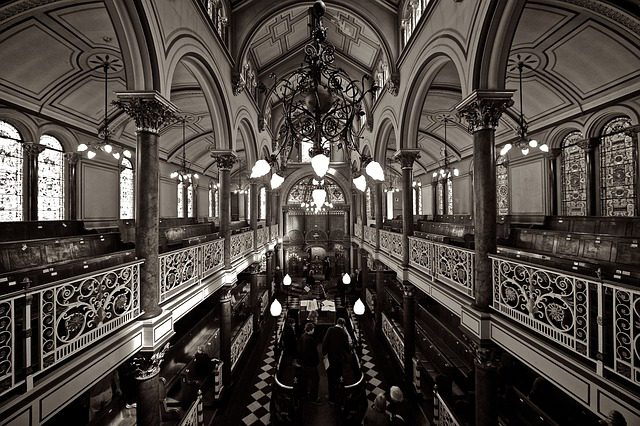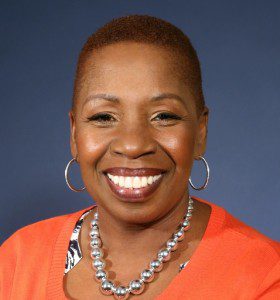My faith has changed a lot over the past 10 years. It has taken me all around the theological and  political/social spectrum. I have been very conservative and very liberal and seem to have found a temporary home in the space in between the two. But throughout my entire journey with all of its up’s and down’s, I have tried to remain rooted in a community of faith. I understood that even when I came to points where I disagreed with the majority view of my community, it was still essential to remain a part of them. Diversity, in my opinion, enriches the life of any community. Where I was wrong, I could wrestle through the issues within a trusted group of people until I came to an understanding that felt more right. But whatever the case, I was not going to let anything separate me from the people I had covenanted to be a part of.
political/social spectrum. I have been very conservative and very liberal and seem to have found a temporary home in the space in between the two. But throughout my entire journey with all of its up’s and down’s, I have tried to remain rooted in a community of faith. I understood that even when I came to points where I disagreed with the majority view of my community, it was still essential to remain a part of them. Diversity, in my opinion, enriches the life of any community. Where I was wrong, I could wrestle through the issues within a trusted group of people until I came to an understanding that felt more right. But whatever the case, I was not going to let anything separate me from the people I had covenanted to be a part of.
Over the last four years, my community has been very unique. Instead of a church congregation being my primary “home”, I had the unique opportunity to live on a college campus surrounded by brothers and sisters with similar goals and ambitions rooted in our common evangelical faith. The community that I cultivated with many of my peers was some of the richest and most transformative that I have ever had. Living on a dormitory floor with 30 other men who felt called to ministry and were struggling with all the same doubts, questions, and vices was a unique gift that absolutely changed my life and reshaped my future. Not to mention the opportunity to be mentored by older men and women who also had similar passions and desires, who had dealt with all of the struggles and questions that I was struggling with. In every aspect, the community that I formed in college with both students and faculty provided me with the support and accountability I needed as a young adult with a calling to the ministry.
Yet about a year and a half in to my college experience, something unexpected began to occur. As I became more open with my questions and I began to have experiences that called in to question some of the beliefs and positions that I once held to be foundational, I began to notice people in my community becoming…afraid. People would begin to sit me down and reprminand me for all sorts of reasons- someone had heard I had become a Democrat, another heard that I was no longer a Calvinist, and another had seen me post a favorable Facebook status about Rob Bell. I would get called in to dorm rooms and professors offices and warned about the “slippery slope” that these questions and new positions were leading me down. I began to hear the word “heretic” being applied to me, which was funny, because at the time my theology was almost identical to the people who were applying the label to me.
Initially, I didn’t understand what all the fuss was about. I was just asking questions. I was just trying my hardest to be faithful to what God was teaching me through classes, experiences, and in his word. Why were people so angry? Concerned? Hostile? As you can imagine, I was deeply concerned that people in my community were uncomfortable with me. I wasn’t trying to cause any problems. I was just trying to be honest. Why were people so distressed? Why were people so…afraid?
It was the beginning of my junior year that God finally revealed to me this insight. That the pushback I was experiencing in my community was not rooted in hatred. It wasn’t rooted in pride. The people who were reprimanding me weren’t mean people. Instead, I discovered that they were simply afraid. Terrified. Fearful of what could happen when certain parts of their faith and worldview were called in to question.
And as I reflected on my own journey of faith, I began to realize just how much of it had been rooted in fear as well. I started to see that all of that talk about end-times, apocalypse, persecution, false-teachers, liberalism, communism, the gay agenda, false doctrine that I had heard preached throughout my childhood was not only rooted in fear itself, but was a tactic that sought to propagate that fear to those who were hearing the messages. I began to wonder how this fear became a part of the Christian mindset, especially when the Scriptures teach us that “God is Love” and “Love casts out all fear.”(1 John 4:18) That “God has not given us a spirit of fear, but of power and of love and of a sound mind.” (2 Timothy 1:7)
It seemed to me that this notion of fear was rooted in an image of God that many evangelicals have been taught, that I too once cleaved tightly to. It occurred to me that all of these fear-based responses I was receiving began when I started to articulate a different view of God in my own life.
For many evangelicals, God is fundamentally a judge who has no problem condemning someone to eternal conscious torment for not believing the correct theology. Faith is all about believing the right things in order to appease an angry king who demands that we think rightly, or else. But during my time in college, I had become fascinated with the Gospels and spent a ton of time reflecting on the message and story of Jesus. As I internalized the Gospel accounts, I began to see some major shifts in the way I understood God. I began to understand that God was far more concerned with us having a right relationship with him than he was about whether we got our theology right. I began to notice that Jesus continually talked about eternity, but that the deciding factor was rooted in how we treated the least of these, the poor, and the prostitute, not on whether we towed the correct political party line. I began to see in Jesus as God who pronounced peace, not chaos. Love, not judgement. Acceptance of the most broken among us, not the most pious.
And while I knew that most of my evangelical friends would, in theory, agree with all of this, in practice, the image of God that we held was not this one. We didn’t view God as Jesus, we viewed God more as Molech- a vengeful deity requiring sacrifice and strict obedience or else he would reign down wrath on the reprobate. If Molech is the image of God we embrace, then we have a lot to fear. But if Jesus is God, then fear is expelled. Grace reigns. Love wins. We are free to explore, to ask all of our questions, and to do so knowing that our relationship with God is not contingent upon us having all of the right beliefs but on the simple fact that God loves us as his children, and that nothing could ever put that status in jeopardy. When this became my understanding of God, my whole disposition began to shift. I became radically honest and open. No question was off limit. The only thing that mattered was that as I explored, that I stayed firmly rooted in the Scriptures and in my intimate, experimental relationship with God. But I began to realize that this sort of freedom was terrifying to many people.
It once was scary to me too. Because if God was truly a theological judge, then doubts, questions, and exploration must be the enemy of faith. It was nothing more than a slippery slope away from salvation. But I no longer bought in to that narrative. Instead, I began to understand that my salvation was rooted totally in God’s unconditional grace and love, not on anything I believed or blogged about. Even if I was wrong, I trusted that Gods Spirit would gently guide me to the place I needed to be over time. But it also became abundantly clear to me in this season that all of our attempts to systemize and theologize God would ultimately fall short. The more I began to ask questions, the bigger I began to realize that God was. I began to realize that ultimately, none of us will be able to even begin to comprehend the greatness of who God is. God is eternal, all expansive, vast, and endless. How could we ever think we could even begin to correctly understand that? In the words of St. Augustine “We are talking about God. What wonder is it that you do not understand? If you do understand, then it is not God.”
You see, the biggest transformation that has happened to me since becoming a follower of Jesus is this- I no longer have to be afraid of God. I have come to believe that God is my father and no father wants his child to live in fear of him. No father condemns his child for asking questons. No father condemns his child for getting facts about him wrong. No, God is a better Father than that. In the person of Jesus, we get to see, up close, what God is really like. And what we find is that he is mysterious, strange, difficult to understand at times, creative, loving, gracious, accepting, passionate about justice and righteousness, innovative, and victorious. He’s not like Molech. Not at all. Our God doesn’t instill fear. He imparts peace. And for me, when that shift took place, not only did my relationship with God grow in depth, but my fundamental posture of faith changed. No longer did I have to feign certainty, but instead I could embrace my finitude and curocity, freely admitting that I knew very little but loved my God a lot. And that changed everything.
Two and a half years have gone by since this change occurred. And for two and a half years I have continually seen how fear can cause the fiercest reactions from even the closest people to you. I have read the sharp and painful emails from mentors and classmates who think I’ve gone off the “deep end”. I have heard stories of professors using me as an example of a heretic in classes. I have had difficult conversations with people who once supported me and now think I have abandoned the faith. But in the midst of it all, I can say that I have never been more certain of the love and grace of God, never had access to such peace and freedom, never been so excited to engage the Scriptures, as I am today. Because I do so not out of a spirit of fear, but out of love. And the overwhelming certainty that at the end of this life, it will not be how well we “defended” God, how certain we were of our theology, or how ridigly we held to the party line. No, instead it will be a Father, standing with his arms outstretched to an often wayward but none the less beloved child, beckoning us to enter in and feast at his table and to rest on his breast, and to continue the eternal exploration of the heights and depths of our magnificent and awe-inspiring Creator.
Isn’t that truly Good News?















